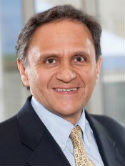Factors associated with recovery of renal function following radical nephrectomy for kidney neoplasms Journal Article
| Authors: | Zabor, E. C.; Furberg, H.; Mashni, J.; Lee, B.; Jaimes, E. A.; Russo, P. |
| Article Title: | Factors associated with recovery of renal function following radical nephrectomy for kidney neoplasms |
| Abstract: | Background and objectives Partial nephrectomy or radical nephrectomy is the standard of care for patients with kidney neoplasms, but surgery may result in loss of renal function. We sought to identify patient characteristics associated with renal functional recovery following radical nephrectomy. Design, setting, participants, & measurements We performed a retrospective study among 572 patients with kidney neoplasms who underwent RN between 2006 and 2013. The primary endpoint was recovery of postoperative eGFR to the preoperative level. We plotted the trajectory of each patient’s eGFR from their first postoperative visit up to 3 years after surgery. Cumulative incidence and competing risks regression estimated associations between patient and clinical characteristics and eGFR recovery, stratified by preoperative eGFR. Results Median age was 61.5 years; 68% of patients were male, and 89% were white. Overall, eGFR increased over time following an initial postoperative decrease. Median postoperative follow-up among survivors was 10.8 (minimum, 0.03; maximum, 36.0) months; during follow-up, 263 patients achieved eGFR recovery. Median time to eGFR recovery was 25.3 months. Two-year cumulative incidence of eGFR recovery was 49% overall and 44% and 58% among those with preoperative eGFR±60 and<60 ml/min per 1.73 m2, respectively (P<0.001). On multivariable analysis, younger age at surgery and female sex were significantly associated with a higher chance of eGFR recovery among patients with preoperative eGFR<60 ml/min per 1.73 m2. Among patients with pre- operative eGFR±60 ml/min per 1.73 m2, hypertension was significantly associated with a lower chance of eGFR recovery, whereas increased tumor size was significantly associated with a higher chance of eGFR recovery.Conclusions Overall, almost half of the patients in this study recovered to their preoperative eGFR by 2 years following surgery. Distributions of preoperative risk factors differed by preoperative eGFR, leading to distinct factors that were significantly associated with chance of eGFR recovery. © 2016 by the American Society of Nephrology. |
| Journal Title: | Clinical Journal of the American Society of Nephrology |
| Volume: | 11 |
| Issue: | 1 |
| ISSN: | 1555-9041 |
| Publisher: | American Society of Nephrology |
| Date Published: | 2016-01-07 |
| Start Page: | 101 |
| End Page: | 107 |
| Language: | English |
| DOI: | 10.2215/cjn.04070415 |
| PROVIDER: | scopus |
| PUBMED: | 26500248 |
| PMCID: | PMC4702228 |
| DOI/URL: | |
| Notes: | Article -- Export Date: 3 February 2016 -- Source: Scopus |
Altmetric
Citation Impact
BMJ Impact Analytics
Related MSK Work








